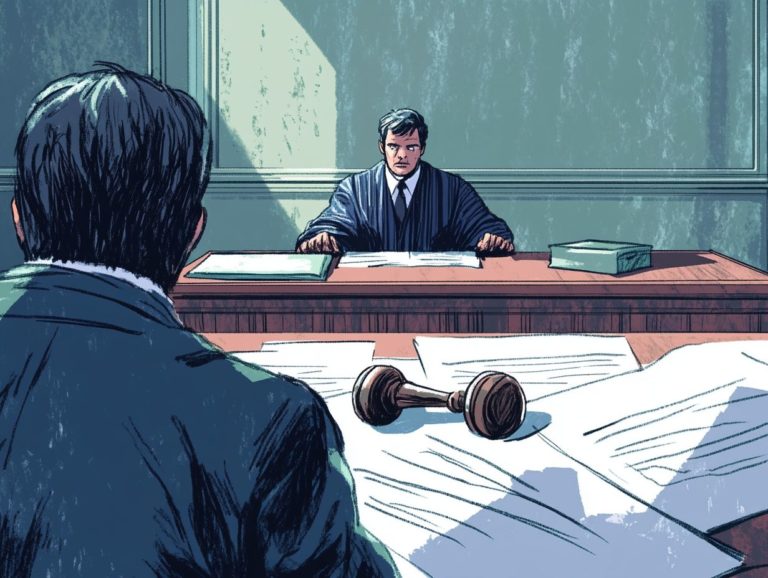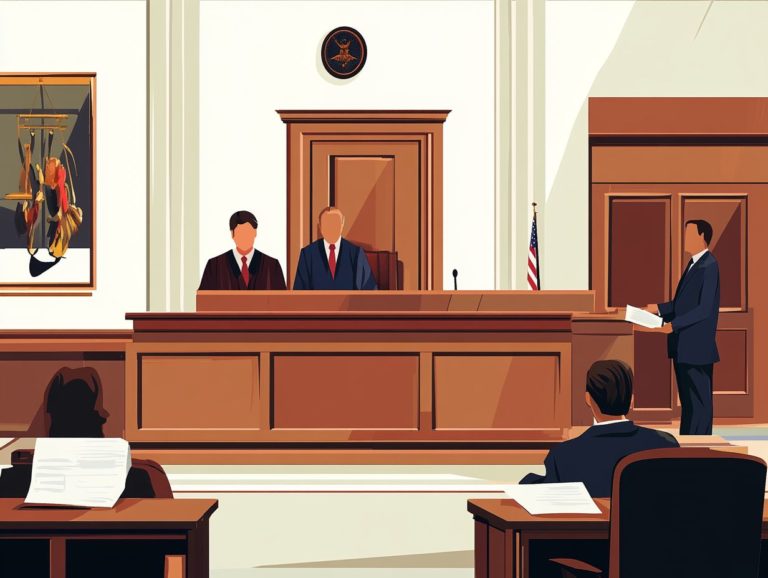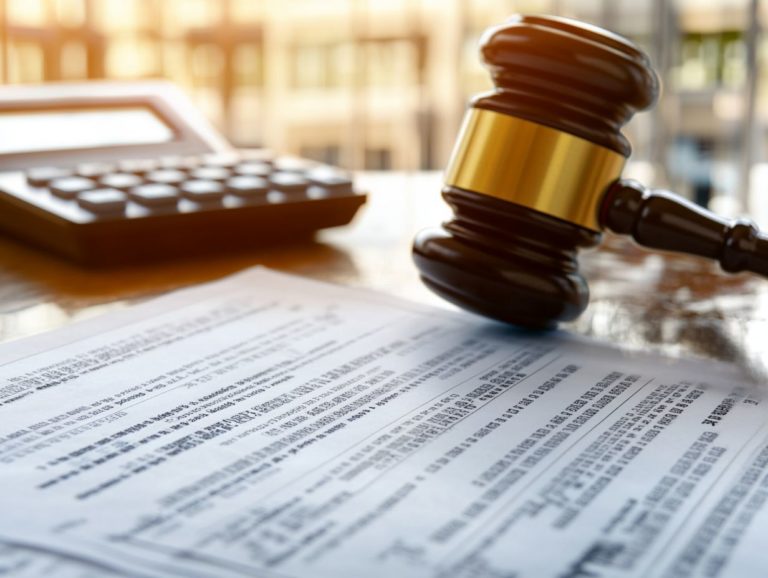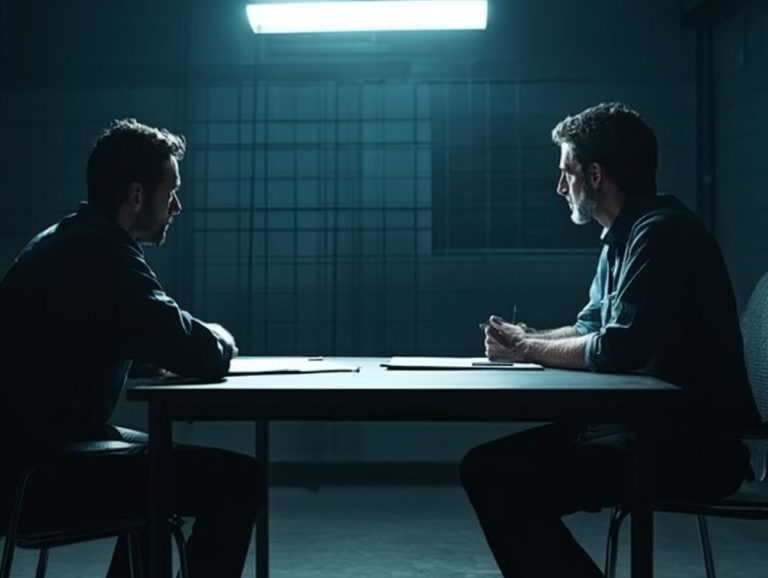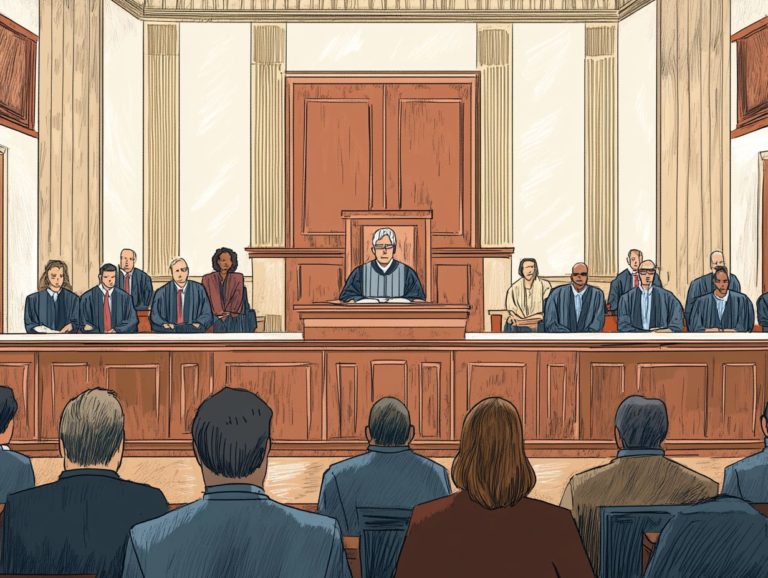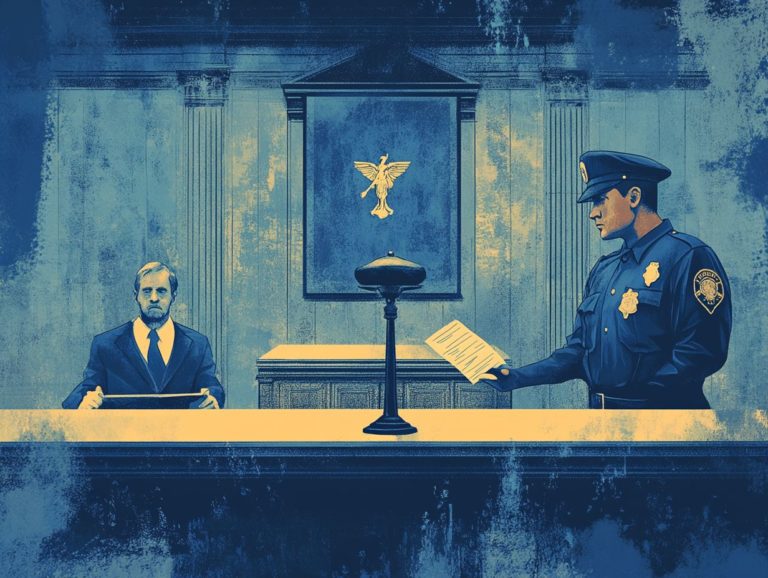What Are the Possible Outcomes of a Criminal Trial?
Understanding the legal system can feel overwhelming. Knowing the possible outcomes like acquittal or conviction is crucial for anyone involved in or interested in criminal justice.
This article explores factors that affect these outcomes. We emphasize the importance of evidence, witness testimony, and legal representation.
We will cover the appeals process, including grounds for appeal and how to start one.
Don’t miss out as we explore the crucial steps of your legal journey.
Contents
Key Takeaways:

Acquittal means you’re found not guilty, and the charges are dropped. A conviction leads to punishment, such as jail time or fines.
Evidence, witnesses, and legal representation can greatly influence the outcome of a criminal trial.
Overview of the Legal Process
The legal journey of a criminal case starts with filing charges. This is followed by steps that may lead to a trial, a plea deal, or even dismissal.
In places like Virginia and Massachusetts, skilled defense attorneys are essential. They expertly navigate the law to get the best outcomes for their clients.
Understanding how a criminal case moves forward is vital. Each phase can significantly impact the final verdict and its consequences.
Possible Outcomes of a Criminal Trial
The outcomes of a criminal trial can change your future. You might face a guilty verdict, leading to conviction, or a not guilty verdict resulting in acquittal.
Plea agreements can also occur, allowing for reduced charges or lighter sentences, or even case dismissal.
Every outcome is shaped by many factors. These include the quality of evidence, the effectiveness of your defense attorney, and the legal strategies used during the trial.
Acquittal
Acquittal means you’re found not guilty, freeing you from legal liability. This moment can be pivotal, often thanks to a strong defense strategy.
Your defense attorney may successfully challenge the prosecution’s evidence or create reasonable doubt about your guilt. Acquittal represents a legal victory and a new beginning.
To achieve this result, a skilled defense attorney examines all evidence. They look for inconsistencies in witness testimonies and explore every angle to establish your alibi.
In cases where DNA evidence is involved, your attorney might reveal flawed forensic procedures. This can raise questions about the findings, leading to a not-guilty verdict.
The strategic use of evidence and a well-prepared defense can truly change your life.
Conviction and Sentencing
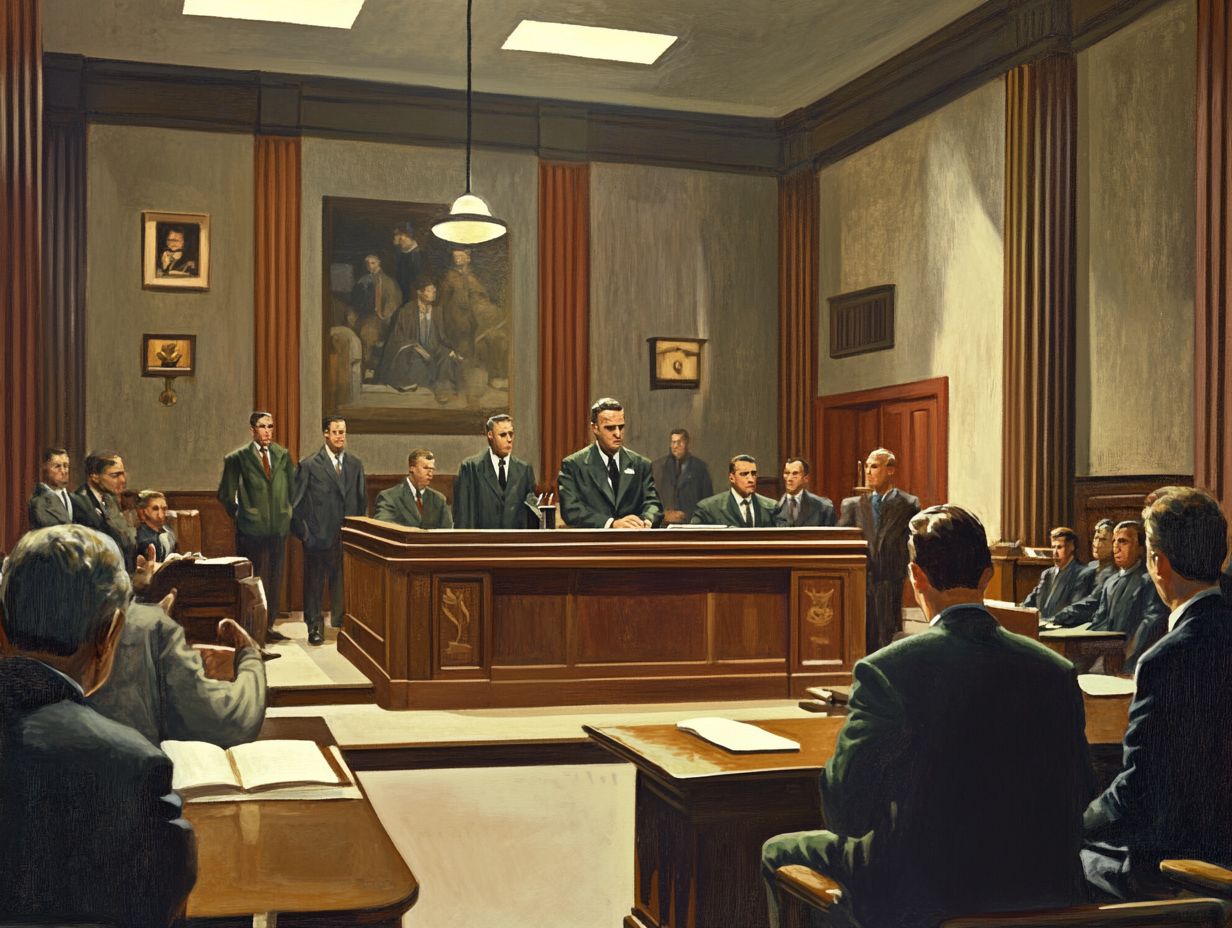
A conviction in a criminal case occurs when you, the defendant, are found guilty of the charges against you. This leads to sentencing, which can include a range of legal outcomes such as probation, fines, or even incarceration.
This highlights the need for a competent defense attorney. They play a crucial role in negotiating plea agreements that can reduce the severity of your sentence or explore alternatives, such as community service or deferred findings.
Once a conviction is established, the sentencing phase becomes vital. Various factors will influence the outcome, including the nature of the crime, your criminal history, and any factors that might lessen the severity of your sentence that your defense presents.
A skilled attorney advocates for you in court and helps you understand the impact of plea deals. Through effective communication and strategic planning, they aim to secure the best possible result for you whether that means reduced jail time or alternative rehabilitation options that emphasize your potential for reform.
Factors that Influence the Outcome
The outcome of a criminal case hinges on several critical factors you must consider. These include the strength of the evidence presented, the credibility of witnesses, and the skill of your legal representation.
In jurisdictions like Virginia and Massachusetts, how evidence is presented can significantly impact the trial’s progression. Both the prosecution and defense must carefully prepare and articulate their cases to effectively influence the jury’s perspective.
Evidence and Witnesses
In a criminal trial, the evidence and witnesses are pivotal elements that can shape the case’s trajectory and outcome, influencing both the jury’s perceptions and the judge’s decisions.
As a defense attorney, you must evaluate, present, and sometimes challenge this evidence, using expert witnesses or forensic testing to create reasonable doubt regarding the prosecution’s claims.
Utilizing physical evidence like fingerprints or DNA samples can effectively counter the prosecution’s narrative. Eyewitness accounts also hold significant weight, but their reliability can be affected by conditions like lighting or the stress experienced during the event.
Expert testimony provides valuable insights that can clarify complex evidence for the jury, making the careful selection of credible experts essential. When these elements are orchestrated effectively, they can greatly influence the jury’s decision, potentially leading to a favorable verdict.
Legal Representation
Legal representation in a criminal case is essential. The quality and skill of your defense attorney can significantly affect the trial’s outcome and your potential for acquittal or a reduced sentence.
A knowledgeable defense attorney not only navigates the complex legal landscape but also crafts strategies to challenge the prosecution’s case, ensuring your rights are protected.
These professionals analyze the evidence, identify weaknesses in the prosecution’s arguments, and weave compelling narratives that resonate with the jury. Their expertise in negotiating plea deals can lead to lesser charges or lighter sentences.
By leveraging their understanding of legal nuances, these attorneys work tirelessly to secure the best possible results for their clients. In the end, having a proficient defense attorney can turn the tide in your criminal case, enhancing your chances and offering hope amid challenging circumstances!
Appealing the Outcome
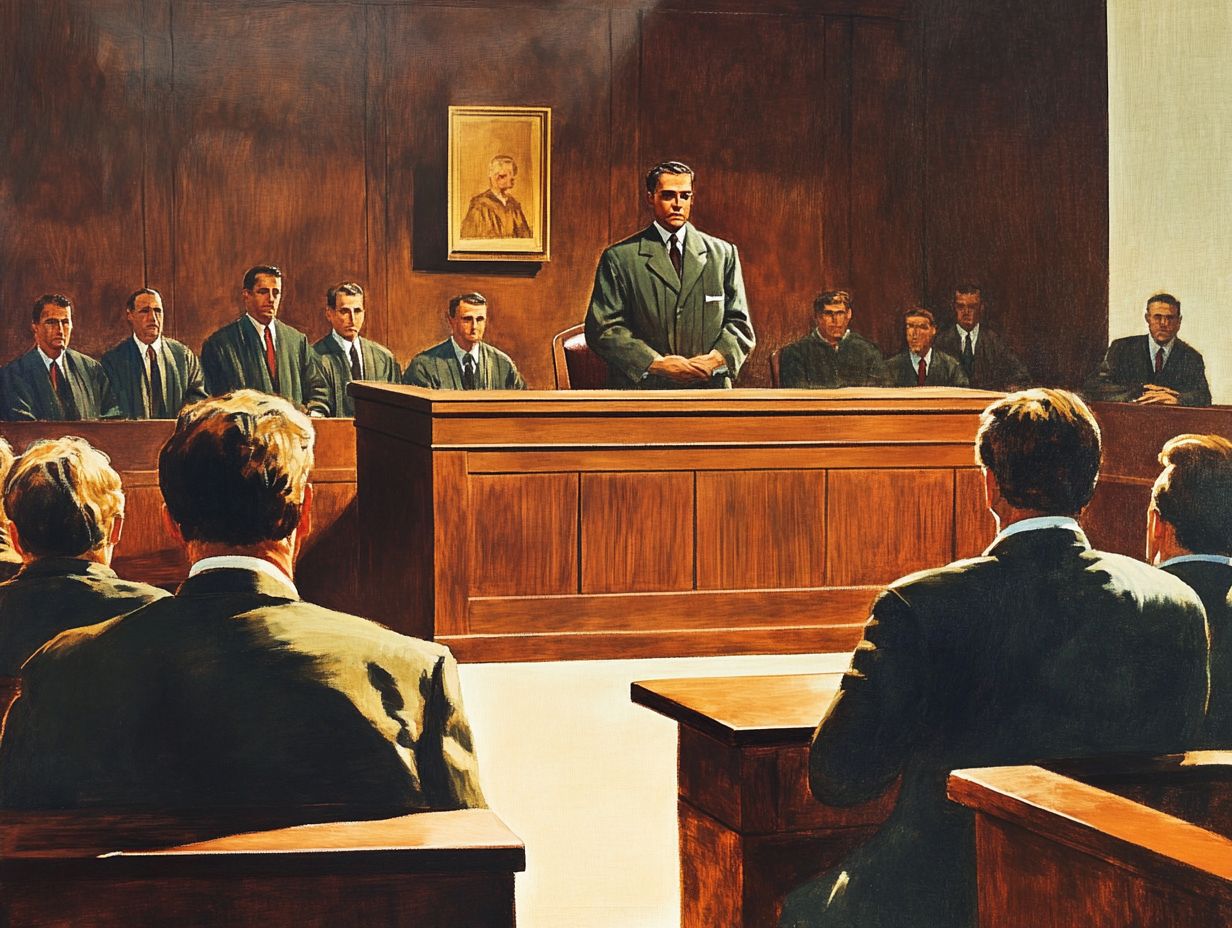
Appealing the outcome of a criminal trial provides a vital opportunity to contest a conviction or sentence, ensuring any legal errors or injustices are addressed in higher courts.
The appeal process can be intricate, demanding a comprehensive understanding of the grounds for appeal. These may include:
- Improper admission of evidence: This is critical as it can influence the fairness of the trial.
- Ineffective legal representation: If your attorney fails to perform competently, it may affect the trial’s outcome.
- Errors in jury instructions: Mistakes here can mislead jurors, potentially swaying the final verdict.
If you or someone you know is facing criminal charges, consult a defense attorney today!
Grounds for Appeal
Grounds for appeal in a criminal case often rely on legal and procedural missteps that may have undermined the trial s integrity. This can include everything from prosecutorial misconduct to improper jury instructions or ineffective assistance from your defense attorney.
It s crucial for you to meticulously document these issues and present them to a higher court to effectively challenge your conviction and seek either a reversal or a retrial.
Take, for instance, prosecutorial misconduct. This could involve withholding evidence that might clear your name. It could also mean making inflammatory statements that unduly influence the jury’s perception.
Similarly, if your defense attorney fails to challenge misleading jury instructions, you could find yourself in an unfair position. Your defense attorney’s role is vital in identifying these potential errors and articulating them clearly.
It s essential that the appellate court fully understands how such mistakes may have affected the trial s outcome. By thoroughly investigating and presenting these issues, your attorney helps protect your rights and uphold the principles of justice.
Process for Appealing
The process of appealing a criminal conviction consists of several well-defined steps that you ll need to follow. This journey can differ based on the jurisdiction you re in.
It s essential to enlist a defense attorney who knows appellate law to navigate each phase and advocate for your interests. Timing is crucial; missing deadlines could jeopardize your appeal.
After filing the notice, your attorney will gather crucial documentation, including trial transcripts and evidence, to build a compelling case. Once the appellate brief is submitted, your attorney will prepare for oral arguments.
These arguments are key to persuading the judges to recognize any errors made during the initial trial. The potential outcomes you may face can range from upholding the conviction to a complete reversal or remand for a new trial.
This underscores the importance of meticulous preparation and legal expertise throughout this intricate process. Every step in the appeal process is vital; missing a single deadline could put your future at risk!
Frequently Asked Questions
What are the possible outcomes of a criminal trial?
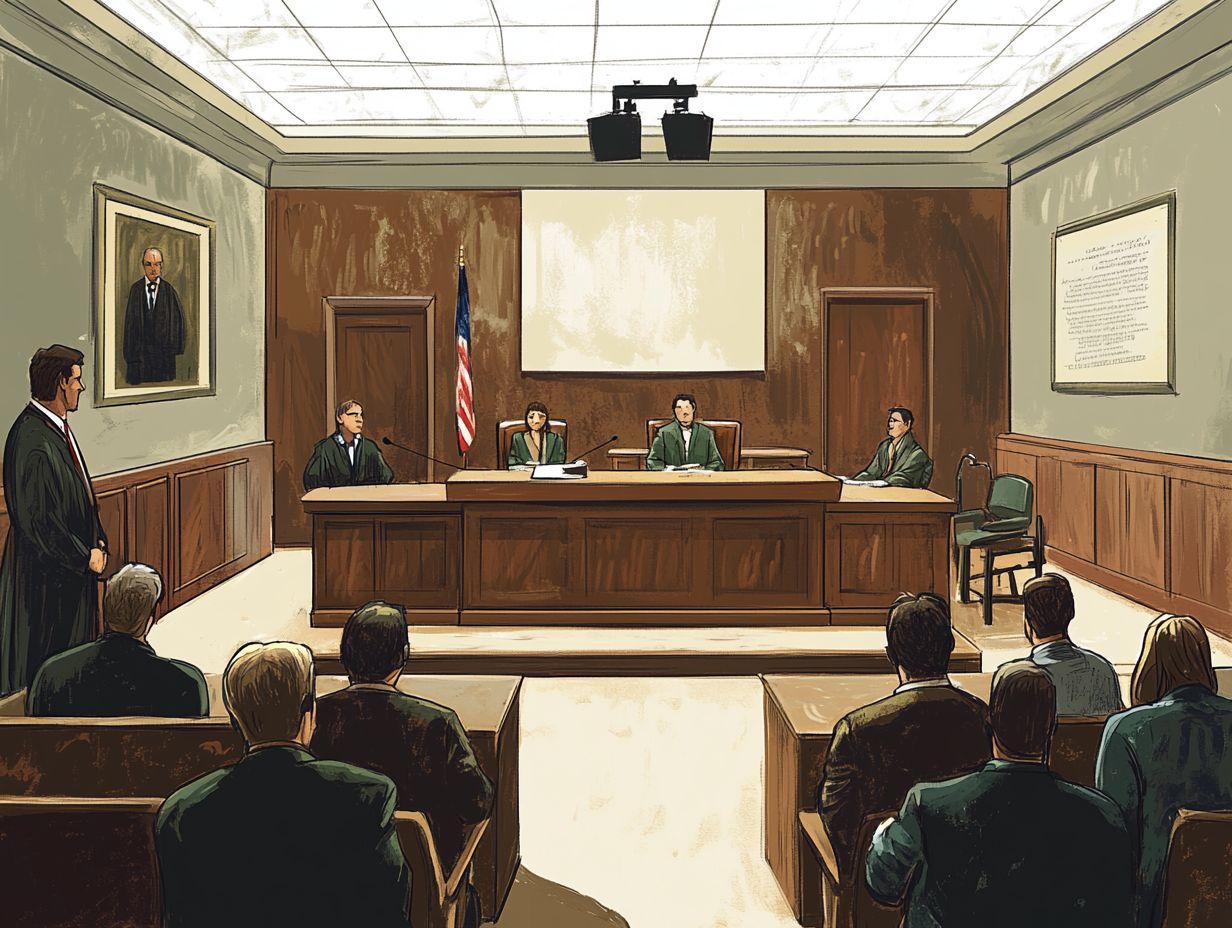
The possible outcomes of a criminal trial include acquittal, conviction, mistrial, and dismissal of charges.
What is an acquittal?
An acquittal is a verdict that declares the defendant not guilty of the charges brought against them. This means that the prosecution was unable to prove their case beyond a reasonable doubt.
What happens if a defendant is convicted?
If a defendant is convicted, it means that the jury or judge has found them guilty of the charges brought against them. They may face sentencing and potential penalties, such as imprisonment, fines, or probation.
What is a mistrial?
A mistrial occurs when a trial is not completed or is declared invalid. This can happen for various reasons, such as a hung jury, misconduct, or new evidence that affects the case.
Can a defendant be charged again after a mistrial?
Yes, a defendant can be charged again after a mistrial, as the case was not fully resolved. However, the prosecution may decide not to pursue the case again or may offer a plea deal to avoid another trial.
What does it mean if the charges are dismissed?
If the charges are dismissed, it means that the case against the defendant has been dropped and they will not face trial. This can happen for various reasons, such as lack of evidence or violations of the defendant’s rights.

